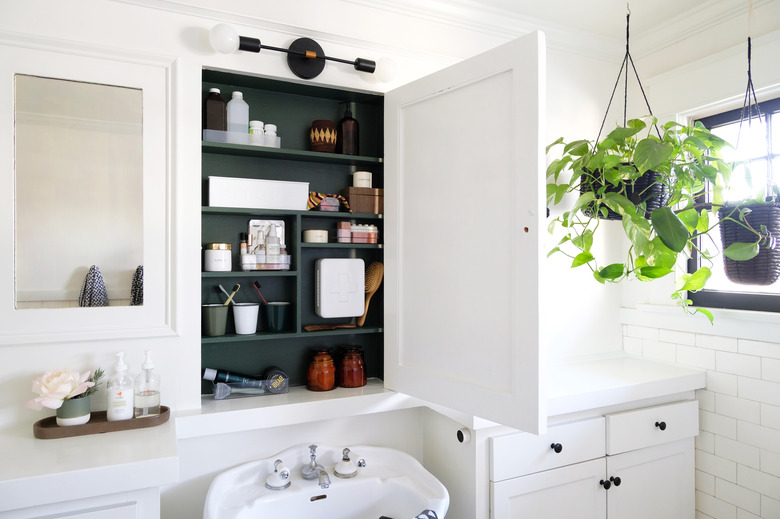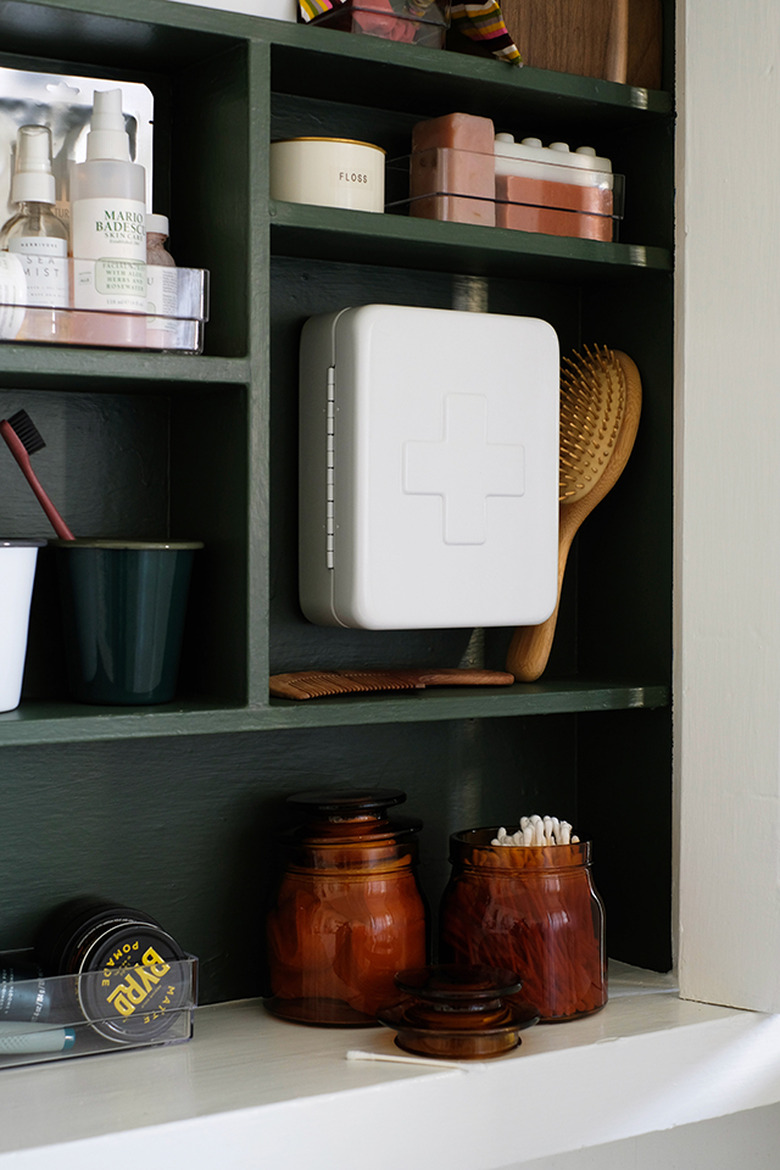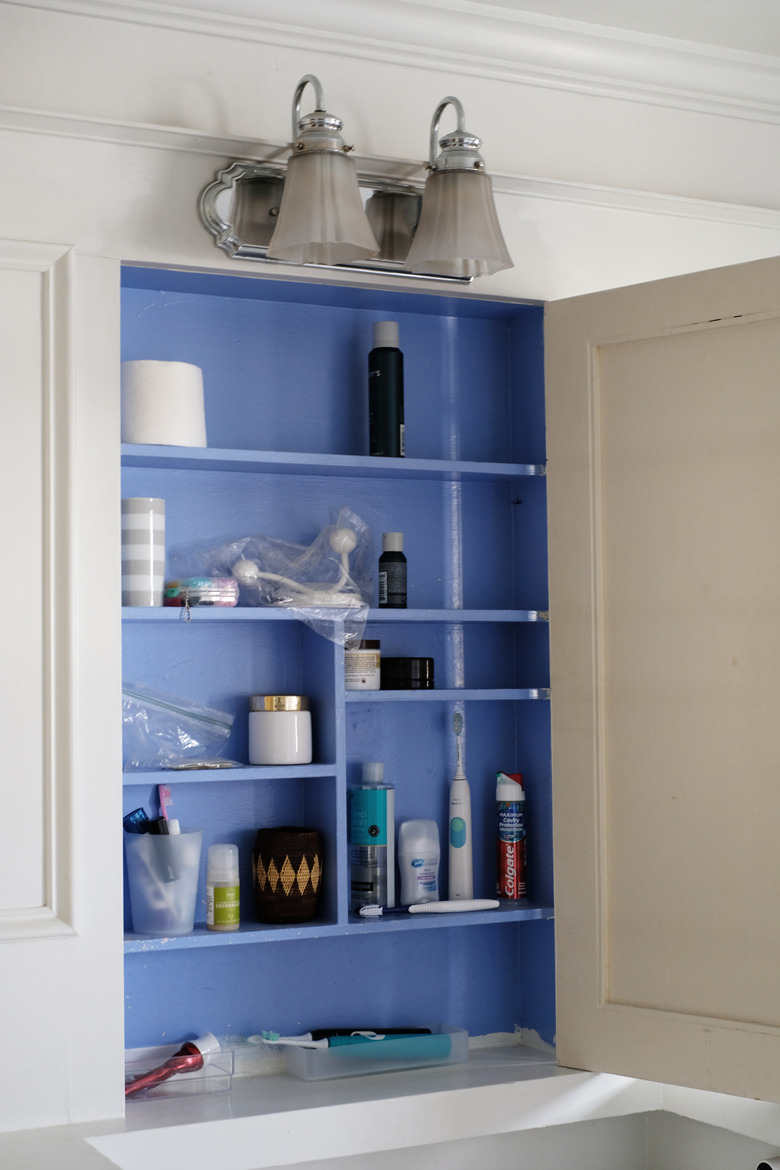Here's What You Should Stock Your Medicine Cabinet With, According To The Experts
We may receive a commission on purchases made from links.
If there's one thing we've learned from the current coronavirus (COVID-19) pandemic, it's the importance of preparedness. Yes, you should make sure to proactively stock up on food staples and other household supplies, but you must also check that your medicine cabinet is equipped with the essentials you'd need in case of quarantine (without, of course, hoarding supplies).
To make sure that our medicine cabinets are properly stocked, we consulted information from the Centers for Disease Control and Prevention (CDC) and U.S. Department of Homeland Security, and reached out to healthcare professionals for their tips and recommendations.
Prior to a pandemic, the Department of Homeland Security's Ready campaign advises that you have a supply of your regular prescription drugs on hand. The CDC recommends having at least a seven to 10 day supply in labelled, childproof containers. Talk to your doctor or pharmacist to figure out a plan for getting this supply and making sure that you always have non-expired medications on hand.
In addition, make sure that you have copies (including electronic versions) of your health records, insurance policies, and prescription needs. Both the Ready campaign and CDC state that you should also have nonprescription drugs and health supplies such as: pain and fever relievers, stomach remedies such as antidiarrheal medications, diuretics, cough and cold medicines, fluids with electrolytes, antihistamines, and vitamins. Be sure to store these where they are out of the reach of children.
In regards to the coronavirus, Dr. Shuhan He, an emergency medicine physician at the Harvard Teaching Hospital Affiliate Massachusetts General Hospital tells Hunker, "It's important to have the medicines that make you feel better when you're ill. COVID-19 mostly affects the throat and lungs, so things like cough suppressants [are good to have on hand]." He recommends dextromethorphan (a cough suppressant found in medications like Robitussin), Tylenol (a fever reducer that can help take the chills away), vitamin D (helps since everyone is staying indoors), and Flonase and Sudafed for a runny nose (though the coronavirus isn't known to affect the sinuses, this is still good to have in general).
Both the Ready campaign and CDC Personal Needs list recommend that you consider adding the following medical supplies (the Personal Needs kit also includes non-medical items, which you can see here) to your emergency kit:
- Prescription medications
- First aid kit and supplies including non-latex gloves, a digital thermometer, waterproof bandages and gauze, and tweezers and scissors
- Personal hygiene supplies including soap, hand sanitizer, sanitizing wipes, garbage bags and plastic ties, toilet paper, and feminine hygiene supplies
- Dust masks/face masks
- Nonprescription medications such as pain relievers, anti-diarrhea medication, antacids, or laxatives
- Glasses, contact lenses, and contact lens solution
- Infant diapers, wipes, and diaper rash cream
- Household chlorine bleach and a medicine dropper to disinfect water
- Assistive technologies such as hearing aids and picture boards
- Medical alert identification bracelet or necklace
- Health protection supplies like insect repellent, water purification tablets, and sunscreen
- Medical equipment, including canes, crutches, walkers, wheelchairs, nebulizers, oxygen equipment, and blood sugar monitors
- Medical supplies, including antibacterial wipes, catheters, syringes, nasal cannulas, and blood test strips
- A Stop the Bleed kit including a tourniquet
The above list does include items that a person with a disability might need, but the Oregon Health and Science University (OSHU) has specifically created an Emergency Preparedness Tool Kit for People with Disabilities. In the document, you will find a Personal Ability Self-Assessment and a Disability-Related Supplies and Special Equipment List that can help you figure out what your needs require. If you have any questions or need help creating a plan, contact your healthcare provider.
Though you won't be able to fit all that we've mentioned in your medicine cabinet, it's important that you take these items into consideration based on your household's needs. Make sure your emergency kit is stored in a safe, known location that is easily accessible. And as always, look out for family, friends, and community members who may need help preparing.


